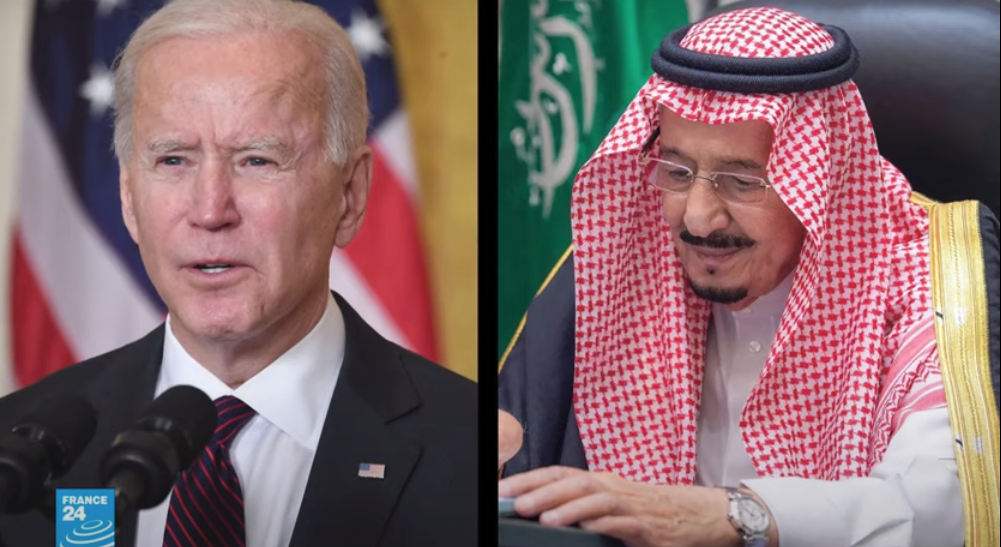In considering the possibility of signing a tripartite agreement involving the US and Israel, Saudi Arabia is leading a political campaign calling for the establishment of an independent Palestinian state.
Recently, an Arab-European conference was held at the United Nations with the participation of 50 countries, excluding Israel and the Palestinian Authority (PA).
The conference discussed the possibility of renewing the peace process in the Middle East and reviving the two-state solution.
After the convention, Saudi Foreign Minister Faisal bin Farhan stated that “there is no possibility of resolving the conflict without the establishment of an independent Palestinian state.”
Saudi Arabia knows that the price it demands from Israel for normalization is excessively high and could severely damage Israel’s security.
Israel’s withdrawal from the Gaza Strip clearly demonstrated that Palestinians often turn areas from which Israel withdraws into terrorist bases.
Therefore, any political settlement with the Palestinians in Judea and Samaria requires that ultimate security responsibility rests with Israel.
Countries that have signed a normalization agreement with Israel, such as the United Arab Emirates, Morocco, Bahrain, and Sudan, have shown a pragmatic approach without placing this condition on Israel.
They have greatly benefited from the normalization process with Israel.
The American administration must also reconsider its approach to the Israeli-Palestinian conflict and not position a two-state solution as the sole resolution.
The Oslo agreement failed, and today the Palestinian street does not believe in a two-state solution.
Palestinian public opinion polls indicate that the majority of the Palestinian public does not believe in this path and advocates an armed struggle against Israel.
The US, Saudi Arabia, and Israel aspire to reach a successful tripartite agreement.
However, the conditions for such an agreement are very difficult for each party.
The right-wing government in Israel, which rests on a solid majority in the parliament, cannot sign an agreement that contradicts its promises to its voters.
Saudi Arabia has been a proponent of the Arab peace initiative since 2002, advocating an Israeli withdrawal to the 1967 lines and the establishment of an independent Palestinian state with East Jerusalem as its capital.
Additionally, the Biden administration strongly believes that the two-state solution is the only realistic resolution to the Israeli-Palestinian conflict.
Hence, demanding that the State of Israel agree to a potentially suicidal security solution is impossible.
Israel believes that making peace with the entire Arab world without making it conditional on the establishment of an independent Palestinian state is a real possibility.
Israel is also ready to act with all its might to strengthen the PA in Judea and Samaria and prevent its collapse.
A strong PA that resolutely fights against terrorism is in the interest of all parties.
However, since its establishment in 1994, the PA has proven ineffective in combating terrorism and incitement, and over time, it has become corrupt.
The PA encourages terrorism by paying monthly salaries to terrorists and enables incitement against Israel in its official education system and through its media.
The Israeli public does not believe that it genuinely seeks peace and accepts an independent Palestinian state.
Part of Saudi Arabia’s security demands from the US to agree to normalization with Israel is dangerous for Israel.
Israel must not agree to Saudi Arabia enriching uranium in its own independent reactor on Saudi soil, as this could potentially lead to the production of nuclear weapons in the future, endangering Israel and opening the door to a nuclear arms race in the region.
Moreover, the supply of advanced weapons systems from the US to Saudi Arabia harms Israel’s qualitative advantage over Arab countries.
While it is Saudi Arabia’s right to defend itself against the Iranian danger, this must not come at the expense of Israel’s security.
According to reports in the US, discussions between the administration and the Saudi royal house are ongoing regarding a defense alliance similar to the security agreements between the US and its allies Japan and South Korea.
This is the primary focus for Saudi Arabia, aiming for a strong security agreement that will deter Iran from attacking.
This is an internal American matter that does not harm Israel’s security, as it understands the security needs of Saudi Arabia given Iran’s hostile intentions.
Saudi Arabia and Israel share a common interest in defending against Iranian aggression.
It’s vital for Saudi Arabia to consider this shared interest.
The Saudi-American expectation that Prime Minister Netanyahu will dissolve the current coalition and establish a new coalition to promote the normalization agreement with Saudi Arabia is not realistic.
Netanyahu has made it clear since 1993 of his resolute opposition to the establishment of an independent Palestinian state.
The ball is in Saudi Arabia’s court. Israel genuinely desires a normalization agreement with Saudi Arabia, but not at any price—certainly not at an excessive price that endangers its security.
Saudi Arabia must prioritize its security considerations.
Its reconciliation agreement with Iran is temporary as long as extreme Shiite religious rule persists in Iran.
Saudi Arabia must convince the Palestinian leadership that its security interests come before Palestinian interests and that it cannot force Israel to agree to a Palestinian state.
President Biden has refrained from intense involvement in the Israeli-Palestinian conflict during his current term, understanding the potential price of failure.
However, he is now working to achieve a political achievement in the run-up to the presidential elections and to counter China’s position in the Middle East.
This presents a significant challenge for which he may pay a heavy price.
The tripartite deal between the US, Saudi Arabia, and Israel requires the approval of the American Congress, a body that, for the most part, does not believe in Saudi Crown Prince Mohammed bin Salman concerning human rights and American interests.
Therefore, it is not impossible that if President Biden encounters great difficulties in obtaining the deal, he will work to obtain a partial deal, which he will try to complete in the future if he is elected to a second term in the White House.



